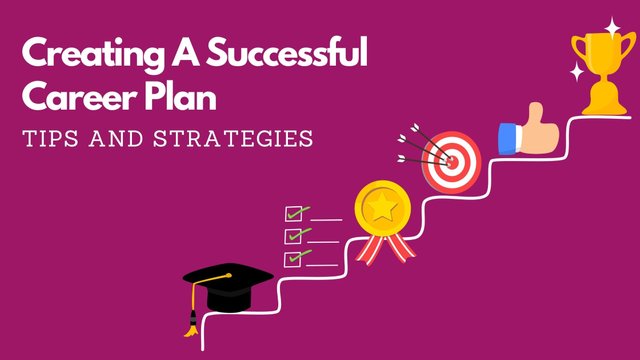Creating A Successful Career Plan: Tips and Strategies | Vati - Career Planning Platform

A successful career doesn't happen by chance; it requires careful planning, clear goals, and strategic decision-making. Career planning is a dynamic process that involves exploring career options, setting achievable goals, and creating a well-crafted career plan. In this comprehensive article, we will delve into essential tips and strategies to create a successful career plan that aligns with your aspirations and leads you toward professional fulfillment.
Self-Reflection: Understanding Your Passions and Strengths
The first step in creating a successful career plan is self-reflection. Take the time to understand your passions, strengths, and values. Identify the activities and fields that ignite your enthusiasm and align with your core values. By gaining insights into your true interests, you can align your career choices with your intrinsic motivations.
Set Clear Career Goals: Defining Your Path
Once you have explored your passions and strengths, set clear and specific career goals. Define your short-term, medium-term, and long-term objectives. Your goals should be measurable and achievable, providing you with a clear direction to work towards.
Research Career Options: Exploring Diverse Paths
Research different career options that align with your interests and goals. Explore various industries, job roles, and organizations to gain insights into potential career paths. Consider factors such as job demand, growth prospects, and salary ranges. Exploring diverse career options will broaden your horizons and help you make informed decisions.
Vati is a dynamic career planning platform that empowers individuals to explore a wide range of career options. With a comprehensive database of industries, job roles, and organizations, Vati offers valuable insights to help users make informed career choices. Discover your ideal career path with Vati's extensive career options and resources.
Seek Career Guidance: Leveraging Professional Advice
Seeking career guidance from mentors, career counselors, or professionals in your desired field can provide valuable insights and perspectives on your career choices. Networking with professionals in your industry can open doors to new opportunities and offer valuable career advice.
Pursue Education and Skill Development: Building a Strong Foundation
Education and skill development play a vital role in career planning. Identify the educational qualifications and certifications required for your desired career path. Invest in relevant courses and workshops to develop the skills necessary for success in your chosen field. Continuous learning and upskilling ensure you stay competitive in a dynamic job market.
Create a Career Plan: Mapping Your Journey
Develop a well-structured career plan that outlines the steps you need to take to achieve your career goals. Your plan should include short-term and long-term milestones, along with the actions required to attain them. A comprehensive career plan will keep you focused and motivated throughout your career journey.
Embrace Change and Adaptability: Navigating Transitions
Embracing change and adaptability are essential for successful career planning. The world of work is constantly evolving, and being open to new opportunities and willing to pivot your career plan when needed can lead to new and unexpected possibilities.
Network and Build Relationships: Leveraging Connections
Networking is a powerful tool for career planning. Attend industry events, join professional associations, and participate in online networking platforms to expand your professional connections. Building strong relationships within your industry can lead to valuable mentorships, job referrals, and career growth opportunities.
Gain Practical Experience: Internships and Volunteer Work
Practical experience is invaluable for career development. Consider internships, co-op programs, or volunteer work to gain hands-on experience in your chosen field. Practical exposure not only enhances your resume but also helps you make informed decisions about your career preferences.
Evaluate and Reassess: Continuous Improvement
Regularly evaluate your progress towards your career goals and reassess your plan as needed. Consider any changes in your interests, priorities, or external factors that may impact your career choices. Continuous self-assessment and reassessment ensure that your career plan remains aligned with your aspirations.
Conclusion
Creating a successful career plan requires a thoughtful and systematic approach. By combining self-reflection, goal setting, career exploration, and continuous learning, individuals can develop a well-crafted career plan that aligns with their passions and strengths. Seeking guidance from mentors and networking with professionals in the industry can provide valuable insights and open doors to new opportunities. Moreover, embracing change and adaptability ensures that career plans remain dynamic and responsive to evolving market demands.
A strong educational foundation and practical experience complement career planning efforts, equipping individuals with the skills and knowledge needed for success in their chosen fields. Building a comprehensive career plan, coupled with continuous evaluation and improvement, provides a roadmap to achieve career goals and reach new heights of professional fulfillment. With the right strategies and determination, individuals can create a successful career plan that sets them on a path of growth and accomplishment in their chosen careers.
Read More Articles:
Types Of Programs At College In Canada For New Immigrants: Navigating Career Options Through Career Planning
Top Strategies For Effective Career Planning and Development
Discovering Your Passion: The First Step Towards Defining Your Career Path